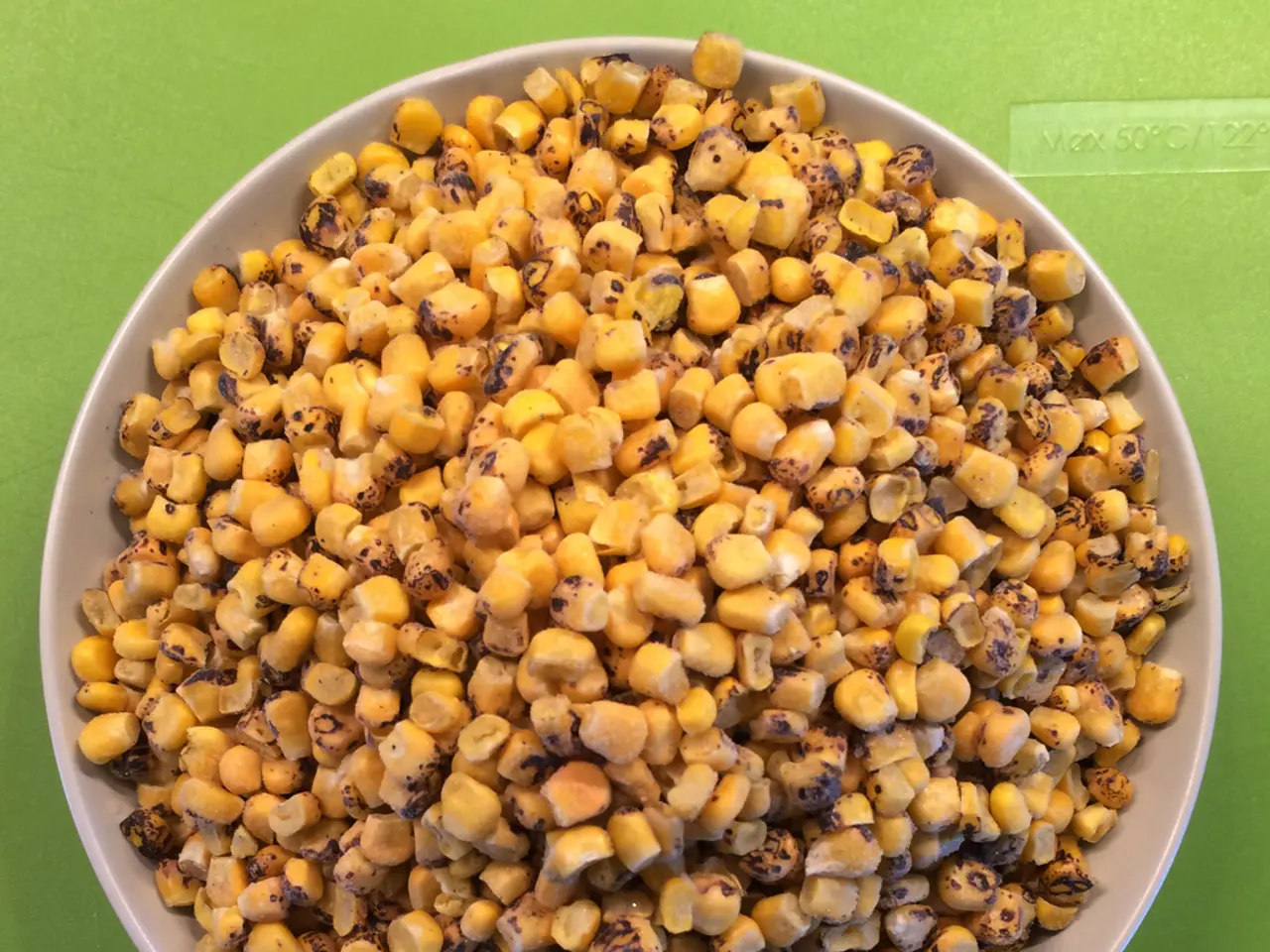Boosting Yields and Income for Farmers: Enhanced Sesame Varieties and Methods for Madhya Pradesh and Chhattisgarh Agriculture
In the heart of India, the states of Madhya Pradesh and Chhattisgarh have emerged as key regions for sesame cultivation. Sesame, known locally as til, thill, or gajjak, is a valuable crop due to its high oil content and adaptability to the regional climate and soil.
One of the standout black-seeded varieties in Madhya Pradesh is PKDS-8 (Jawahar Til-14), introduced in 2010. This variety yields 700-750 kg/ha and matures in 85-88 days, making it a popular choice for farmers. PKDS-8 is especially valued for its tolerance to capsule borer and its uniform maturity.
Another dark brown-seeded variety, PKDS-11 (Jawahar Til-11 - Venkat), was released in 2006. This early maturing (82-85 days) variety shows resistance to Macrophomina and has a compact plant structure, which is beneficial for mechanized harvesting.
In Chhattisgarh, varieties such as Chari-11 and Brijhans are preferred. These varieties are known for their good oil content and moderate resistance to diseases.
Commonly recommended sesame varieties in Madhya Pradesh include TMV 3, Nirmal S-1, and RT 46. These varieties are known for early maturity and tolerance to biotic stresses. In Chhattisgarh, varieties like Chari-11 and Brijhans are preferred due to their good oil content and moderate resistance to diseases.
Sesame thrives best in well-drained sandy loam or medium-textured soils and prefers temperatures between 25°C and 35°C. Waterlogging should be avoided as it is harmful to sesame. Sowing is recommended in the first week of July for the Kharif season, with a spacing of 30 × 10-15 cm.
Sesame is drought-tolerant but sensitive to high temperatures above 40°C and low temperatures below 15°C. To protect sesame seeds from early fungal and bacterial attacks, treat them with Thiram (2 g/kg), Carbendazim (1 g/kg), and spray Agrimycin-100 (0.025%) to control bacterial leaf spot.
Some of the other notable sesame varieties in these states include TKG-55, JTS-8, PKDS-12, TKG-22, TKG-21, TKG-306, and TKG-308. These varieties are known for their disease resistance, high yield, and short maturity period.
For the most accurate, updated list and detailed traits for sesame varieties recommended specifically for Madhya Pradesh and Chhattisgarh, consultation of local agricultural university releases or ICAR-Indian Institute of Oilseeds Research publications would be beneficial. Such information is essential for farmers to make informed decisions and optimise their sesame cultivation efforts.
Science plays a crucial role in improving and promoting sesame cultivation in Madhya Pradesh and Chhattisgarh, particularly in the development of resilient varieties like PKDS-8 and PKDS-11, which exhibit tolerance to pests and diseases. In health-and-wellness aspects, the consumption of sesame seeds is beneficial due to their rich oil content, making them an ideal choice for both farmers and consumers.




